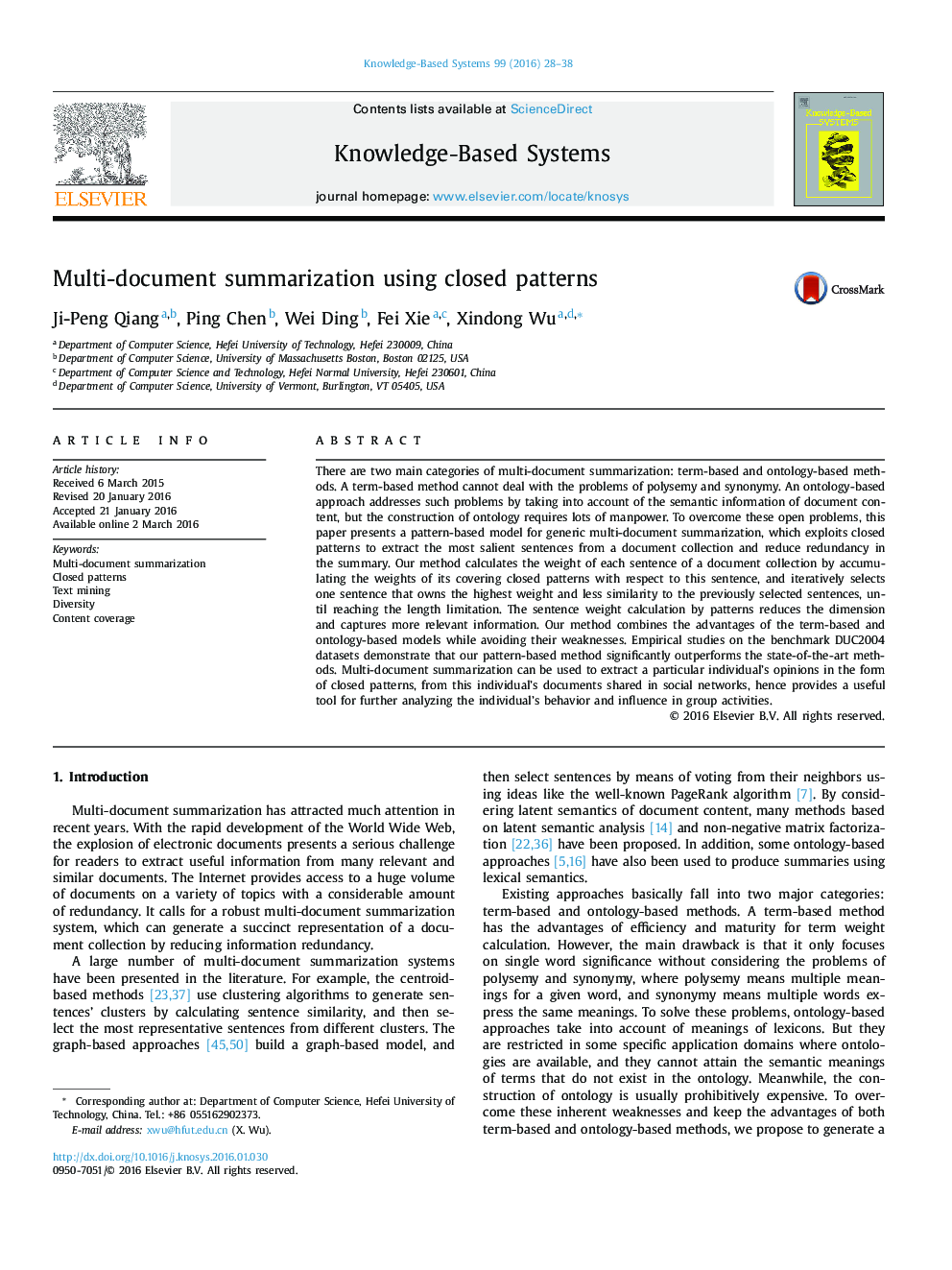| Article ID | Journal | Published Year | Pages | File Type |
|---|---|---|---|---|
| 403439 | Knowledge-Based Systems | 2016 | 11 Pages |
There are two main categories of multi-document summarization: term-based and ontology-based methods. A term-based method cannot deal with the problems of polysemy and synonymy. An ontology-based approach addresses such problems by taking into account of the semantic information of document content, but the construction of ontology requires lots of manpower. To overcome these open problems, this paper presents a pattern-based model for generic multi-document summarization, which exploits closed patterns to extract the most salient sentences from a document collection and reduce redundancy in the summary. Our method calculates the weight of each sentence of a document collection by accumulating the weights of its covering closed patterns with respect to this sentence, and iteratively selects one sentence that owns the highest weight and less similarity to the previously selected sentences, until reaching the length limitation. The sentence weight calculation by patterns reduces the dimension and captures more relevant information. Our method combines the advantages of the term-based and ontology-based models while avoiding their weaknesses. Empirical studies on the benchmark DUC2004 datasets demonstrate that our pattern-based method significantly outperforms the state-of-the-art methods. Multi-document summarization can be used to extract a particular individual's opinions in the form of closed patterns, from this individual's documents shared in social networks, hence provides a useful tool for further analyzing the individual's behavior and influence in group activities.
